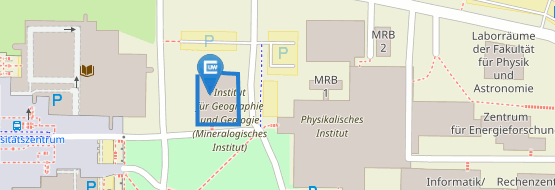SMART-TWIN: KI-gestütztes Planungstool für eine klimaangepasste grüne Stadtentwicklung in Bayern
Climate resilience in urban planning is becoming increasingly important, especially regarding the adaption to extreme weather events and mitigating potential risks. In practice, however, implementation often fails due to a lack of appropriate or up-to-date instruments and resources.
For more sustainable and efficient urban and land-use planning, the SMART-TWIN project is developing an AI-supported digital planning tool for the city of Würzburg. Main objective of the project is the extension of the existing digital twin by integrating the urban climate model PALM-4U. This tool enables local authorities and planning offices to simulate different scenarios for real or potential construction projects as well as for changes in green and blue infrastructure, and to evaluate their impact on the urban climate, both under current and prospective (extreme) weather conditions. This way, planning processes can be carried out with greater precision, speed, and cost-efficiency in the future.
Würzburg offers particularly suitable conditions for the project: its warm and dry climate, dense building structures and low proportion of green spaces promote the formation of an urban heat island, making the city a climate change hotspot in Central Europe. Initially, Würzburg will be used as a pilot location, but in the long term, the planning tool shall be transferred to other Bavarian cities with comparable data availability.
Project details
- funding
European Regional Development Fund (ERDF) - duration
10/2025 - 09/2028 - project leader
Univ.-Prof. Dr. Heiko Paeth - project staff
Etienne Roy, M.Sc.
Friederike Schäfer, M.Sc.


